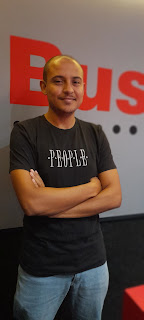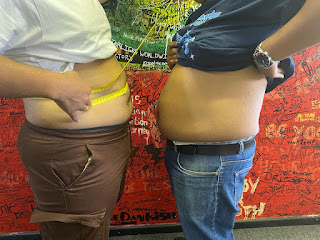07 April - Health
In today’s show, we were joined on the line by Peter Johnston – A Climatologist from the University of Cape Town. We were talking about Climate Change. Today is World Health Day and the focus is around climate change and how it affects our health, how it’s going to affect our future and how we can lessen the damage. Climate change is a worsening national challenge destroying lives and livelihoods, hampering development and leaving millions in greater vulnerability. The earth will become warmer than usual. We will experience warmer winters and extremely hot summers. Rainfall patterns will change and there will be a rise in sea levels. Bigger disasters like the Tsunami are an example of man-made disasters mistakably considered being natural. In fact, climate change causes such disasters. Help create an environmentally aware South Africa; communities are encouraged to think globally while they act locally. That interview was also brought to you by the National Department of Health and Funded by the European Union.
Michelle May – Health Programme coordinator from the Cancer Association of South Africa also joined us on the show. We were talking about the Cancer of the oesophagus or Oesophageal Cancer. It is reported that countries, such as Turkey, China, India and South Africa have very high rates of this type of cancer. Cancer of the oesophagus or gullet develops as a result of cell changes in the lining of the oesophagus. The disease is three times more common in men than in women and is more common in people over the age of 60. Michelle explained more about the symptoms and the available treatment. For more information contact CANSA on (021) 689 5347 or visit www.cansa.orga.za
And last but least we were joined by Gerhard Pieterse – from Autism Western Cape. Gerhard is a Parent of a child with Autism and is responsible for the Project Management of Autism Western Cape. Last week Wednesday was the World Autism Day and Autism Western Cape’s focus was creating more awareness on Autism Spectrum Disorder. Gerhard explained more about Autism and Autism Spectrum Disorder. Autism is characterized by impaired social interaction, problems with verbal and nonverbal communication, and unusual, repetitive, or severely limited activities and interests. Children with autism may fail to respond to their name and often avoid eye contact with other people. They have difficulty interpreting what others are thinking or feeling because they can’t understand social cues, such as tone of voice or facial expressions, and don’t watch other people’s faces for clues about appropriate behavior. If you want more information contact Autism Western Cape on (021) 557 3573 or (021) 556 2600 alternatively visit www.autismwesterncape.org.za
Michelle May – Health Programme coordinator from the Cancer Association of South Africa also joined us on the show. We were talking about the Cancer of the oesophagus or Oesophageal Cancer. It is reported that countries, such as Turkey, China, India and South Africa have very high rates of this type of cancer. Cancer of the oesophagus or gullet develops as a result of cell changes in the lining of the oesophagus. The disease is three times more common in men than in women and is more common in people over the age of 60. Michelle explained more about the symptoms and the available treatment. For more information contact CANSA on (021) 689 5347 or visit www.cansa.orga.za
And last but least we were joined by Gerhard Pieterse – from Autism Western Cape. Gerhard is a Parent of a child with Autism and is responsible for the Project Management of Autism Western Cape. Last week Wednesday was the World Autism Day and Autism Western Cape’s focus was creating more awareness on Autism Spectrum Disorder. Gerhard explained more about Autism and Autism Spectrum Disorder. Autism is characterized by impaired social interaction, problems with verbal and nonverbal communication, and unusual, repetitive, or severely limited activities and interests. Children with autism may fail to respond to their name and often avoid eye contact with other people. They have difficulty interpreting what others are thinking or feeling because they can’t understand social cues, such as tone of voice or facial expressions, and don’t watch other people’s faces for clues about appropriate behavior. If you want more information contact Autism Western Cape on (021) 557 3573 or (021) 556 2600 alternatively visit www.autismwesterncape.org.za



Comments